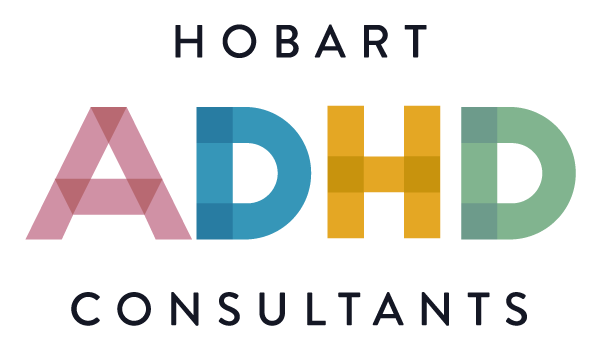Our team includes practitioners who are qualified to assess and diagnose ADHD, and to provide non-pharmacological intervention for ADHD (i.e. psychological/cognitive-behavioural intervention, including ADHD coaching).
Please note that our team does NOT currently include practitioners who can prescribe medication for ADHD.
For all services we do offer, we adhere to the recommendations of the Australian Evidence-based Clinical Guideline for ADHD (NHMRC-approved, 2022).
We value and are informed by lived-experience perspectives on ADHD, and are strictly neurodiversity-affirming in all that we do.
ADHD assessment
To be able to provide effective psychological intervention our psychologists need a thorough understanding of the difficulties that you (or your child) are seeking help with. Assessing for the presence of ADHD may be necessary when planning the intervention and support that is likely to be most helpful.
In your very first session your psychologist will ask you about many aspects of your wellbeing - past and present. At the end of this session the psychologist would discuss with you whether assessing for ADHD or any other condition could be worthwhile, and what the next steps could look like. If going ahead with an ADHD assessment, it will typically involve:
- Two further sessions, of at least least 50 minutes each. Most of this time would be spent establishing whether the diagnostic criteria for ADHD are met, and whether there any other conditions likely to be present.
nb: For children and adolescents, at least one parent (or carer) is required to be present at the sessions as well.
- Review of any school reports you have access to, along with any other reports prepared by a health or allied health professional, or a school psychologist/counsellor.
nb: State education departments or individual schools are often able to provide copies of reports they have stored electronically if you no longer have copies yourself.
- Completion of several questionnaires by yourself and by at least one other person who knows you well.
This may be a partner, a family member or close friend you have known for a long time. For children and adolescents we also require questionnaires to be completed by at least one teacher.
Some assessments may require us to gather additional information, via the completion of further questionnaires, or through discussion with others that know you well, or through an additional session with yourself.
Whilst it is not always possible to draw a conclusive outcome from an assessment, we will always be able to provide intervention regardless (or refer you to another service for intervention if more appropriate).
At the end of the assessment process we do the following:
- Advise you as to the outcome of the assessment.
We take you through our reasoning for our conclusions, discussing each of the diagnostic criteria. We give you the opportunity to ask as many questions as you wish, and to discuss how you're feeling about the conclusion.
- Discuss intervention and support options available to you.
This includes intervention the psychologist is able to provide, as well as intervention that other health professionals may be able to provide (such as medication), along with resources and supports that you may wish to access online. We can discuss with you the research evidence that exists for various interventions along with how each may be able to assist you with progressing towards your goals. We can also discuss the meaning and importance of 'neurodiversity-affirming' approaches to ADHD.
- Provide you with a brief letter stating the outcome of the assessment.
This letter does not contain any of your personal information beyond the assessment outcome. It is intended to be a document you can choose to pass on at any point in time, and is commonly used to provide evidence of an ADHD diagnosis to educational institutions or an employer, should it be required.
- Ask if there are any other health or allied health professionals that you wish to receive more detailed information about your assessment.
With your consent, we can forward summary notes and supportive documents directly to another health professional. As this information is clinical in nature, we can only provide copies of it to appropriately qualified health professionals for interpretation. The summary notes explain how we conducted the assessment and the reasoning behind the conclusions drawn for each of the diagnostic criteria. The supportive documents we include are those provided in writing by yourself, or by someone else for the purpose of your assessment (e.g. your completed intake paperwork, questionnaire responses by yourself and others, copies of school reports etc.). There is no fee for forwarding this information to a health professional of your choice.
It is important to be aware that a health professional will not prescribe medication for ADHD based on a diagnosis determined by another health or allied health professional. Whilst they may take the previous diagnosis and any associated documents into account, they are still are required to conduct their own assessment before prescribing any medication.
Lastly, it is important for you to be aware that we do not provide large formal reports with sets of recommendations (like those commonly provided after a cognitive/educational assessment) as a standard inclusion in our assessment process. This is for several reasons:
- We aim to keep fees affordable for as many people as possible.
Formal reports are costly due to the time taken to prepare them, but are not actually necessary for most clients. The summary notes described above are sufficient for the purpose of informing other health and allied health about your ADHD assessment. Formal reports can be requested for other purposes if required, and the fee in each instance is determined based on the time that would be required to prepare the report.
- We aim to ensure that any sets of recommendations our psychologists provide are likely to be of maximum benefit, and are a worthwhile investment of effort for all involved.
We only provide sets of recommendations that are established by working together over the course of a number of intervention sessions. We find this approach to give better outcomes as each individual with ADHD will have their own unique set of challenges that they experience; their own views on what is most important to them to address; plus a set of strategies and approaches that they already successfully use (whether they know it or not!) along with a sense of what doesn't work for them.
ADHD support and intervention for families
Our practitioners provide ADHD intervention services offered within our 'Family Program for ADHD'. Our experience has taught us that gaining the best outcomes depends on taking a whole-of-family approach, with education and support for parents (or carers) being a critical component. As such, completion of our 'Supporting and coaching your child with ADHD' course is the first step in the Family Program. Once completed, there are further options to choose from including small group programs or individual sessions* (for children and adolescents and/or any combination of family members).
*For most individual session options there is currently an extended waitlist.
'Supporting and coaching your child with ADHD' course
This neurodiversity-affirming course aims to help parents and carers understand their child's ADHD, and develop skills to support and coach their child with managing ADHD impacts through all ages and life stages.
This is offered via a combination of workshops and online content, with individual sessions being an additional option if required (dependent on availability). Workshops are usually held in Hobart, but may be held via video-conference or in outreach clinics outside of Hobart from time to time.
Core areas of focus for parents and carers in the online content and workshop sessions include:
• Understanding ADHD and your child's unique set of challenges
• Using tools and strategies to support your child with challenges
• Discovering and making the most of your child's strengths
• Protecting your child's self-esteem and encouraging resilience and healthy coping habits
• Managing family dynamics and ensuring all family members' needs are met
• Coaching your child to increasingly manage their ADHD symptoms for themselves as they grow older
Additional topics that may be covered in the workshop sessions (time-dependent) include:
• Coping with any grief and adjustment to your child's diagnosis, or with any strain experienced in family life
• Managing impacts on parent/partner relationships and working cohesively as a team
• Managing impacts on your other children and their relationship with their sibling with ADHD
• Accessing additional supports and advocating for your child in settings outside of the home
Further details and access to registration for the course can be found here:
(link opens in a new window)
Intervention sessions for children and adolescents with ADHD
Children and adolescents with an ADHD diagnosis may be booked in for individual intervention sessions with one of our practitioners once at least one parent or carer has completed the above course. Adolescents can attend individual intervention sessions, whilst younger children have the option of individual sessions and/or group sessions (when available). Whilst telehealth sessions may be possible for older adolescents if necessary, we only offer in-person sessions for younger adolescents and children (at our practice in Hobart).
Common areas of intervention focus for children and adolescents with ADHD include:
• An age-appropriate understanding of ADHD, including common strengths and challenges
• ADHD symptom management at home, school, or in other settings
• Low self-esteem
• Family conflict
• Social struggles
• Study demands
• Anger management
• Anxiety and depression management
Support for siblings
The sibling component of our family program may involve individual and/or group sessions (when available). Sessions are delivered at our practice in Hobart, and via outreach clinics we operate in other areas of Tasmania from time to time.
Common areas of intervention focus for children and adolescents with siblings with ADHD include:
• An age-appropriate understanding of ADHD, including common strengths and challenges
• Supporting their sibling with ADHD
• Communicating their needs in adaptive ways
• Coping with strained family dynamics
• Other challenges to their individual mental health and wellbeing

ADHD support and intervention for adults
Our practitioners provide adults of all ages with evidence-based and neurodiversity-affirming intervention and support for ADHD and any co-occurring conditions or difficulties. In one on one sessions, we assist adults with ADHD to:
• Understand the ADHD brain
• Understand their own 'ADHD profile'
• Understand other mental health or neurological symptoms they experience and how those symptoms might interact with ADHD
• Manage the impacts of ADHD and any co-occurring conditions in various life areas
• Utilise their strengths
• Repair their self-image and self-esteem
• Improve relationships and gain effective support from important people in their life
Our practitioners can work with partners and other family members to help them understand and support their loved one with ADHD if requested. We can also work with employers wishing to support an employee with ADHD to perform at their best in the workplace.


